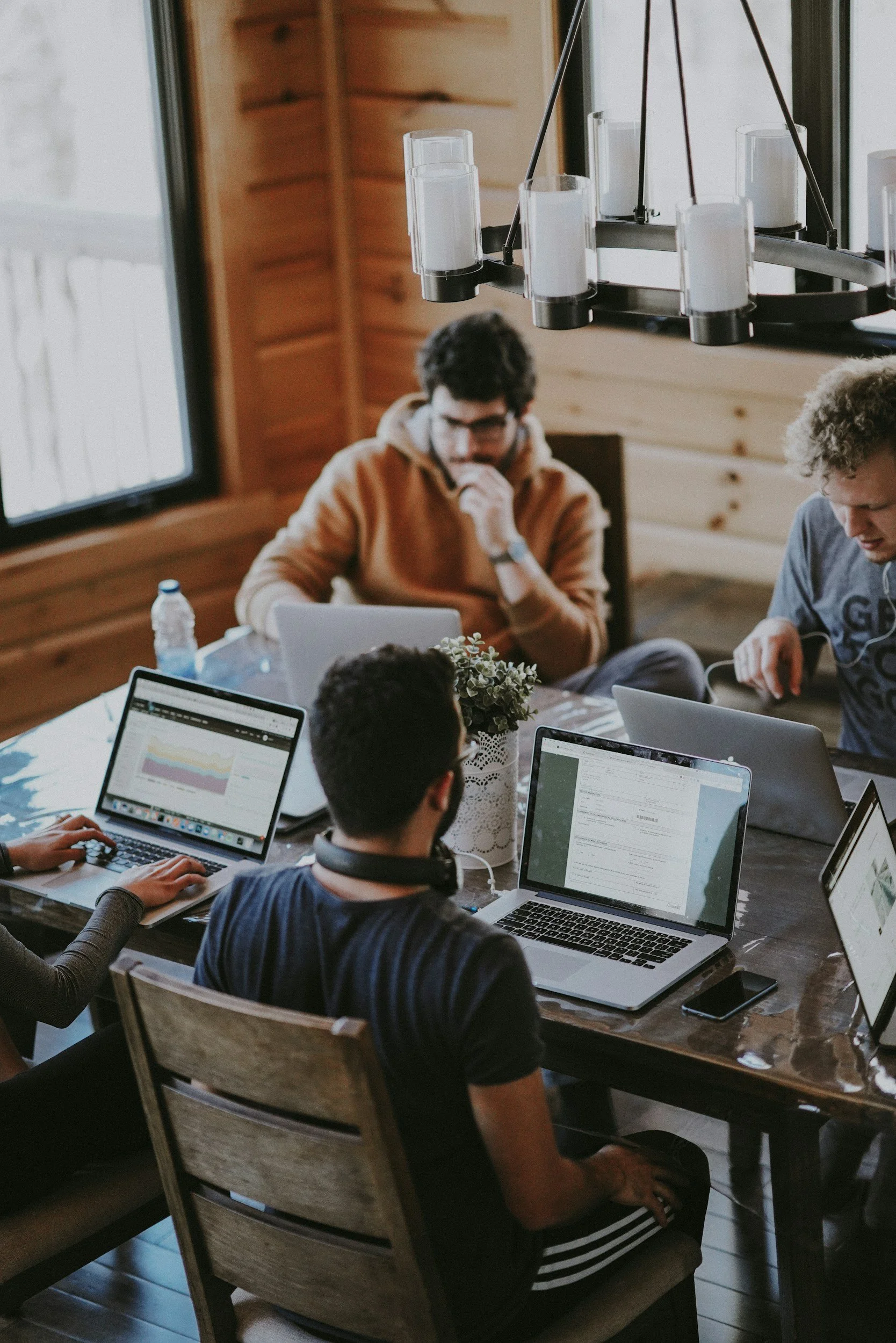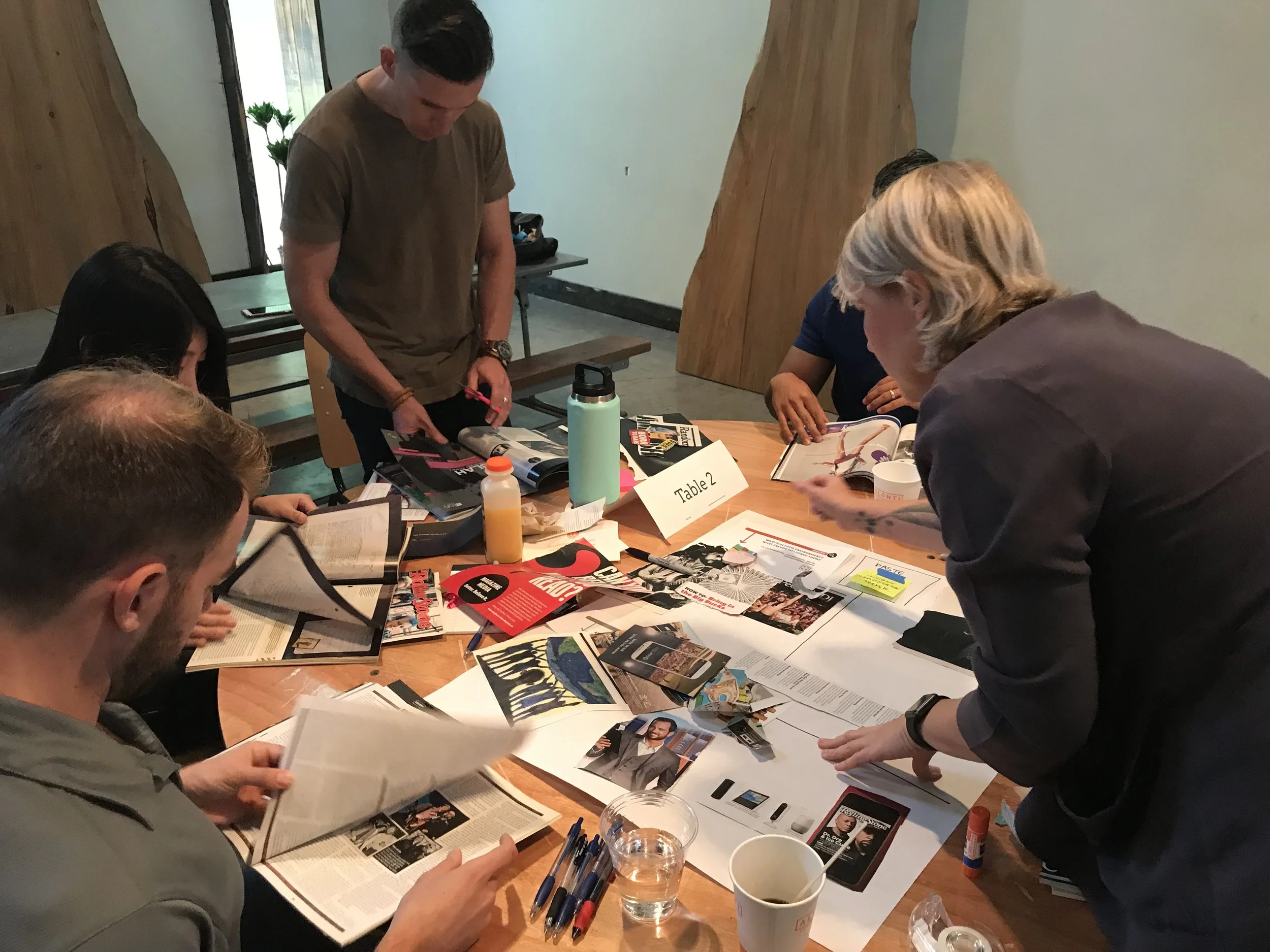
Mindful Studio 2026 Workforce Forecast
Outpaced: What Happens When Work Moves Faster Than We Can Think
Imagine trying to read a novel while the pages turn themselves. You catch glimpses of characters and plot twists, but there's no time to reflect on what any of it means. By the time you grasp one sentence, you're already five pages ahead. This is what work feels like in 2026.
Dashboards update in real time. AI assistants anticipate our needs before we can fully articulate them. Notifications multiply, workflows auto-optimize, and decisions move at machine speed. Everything is faster. But faster doesn't mean clearer. Most of us feel less grounded, less confident, and less connected to the meaning behind the motion.
This is what Alvin Toffler described as future shock—a psychological state triggered by too much change in too short a time. The outputs of our systems now outpace our ability to process them [Toffler, 1970]. And in our pursuit of speed, we've sidelined something far more valuable: Discernment.
That's the central thesis of this report. In a world that is accelerating beyond our cognitive and emotional limits, the next frontier of competitive advantage is not merely speed, but rather more self-awareness.
Jessica Lowry, Founder, Mindful Studio
“In a time of overwhelming ambiguity, our greatest strategic advantage is self-awareness.”
The Hidden Risks of Going Too Fast
Over-indexing on speed—mainly when driven by AI, automation, and productivity metrics—poses serious long-term risks:
Poor Decision Quality: Speed reduces depth. Surface-level choices are made without critical thinking or reflection, increasing the likelihood of error and rework [Damasio, 1994].
Loss of Human Judgment: We begin to outsource our discernment to tools that lack understanding of nuance or ethics.
Burnout and Cognitive Overload: Constant urgency keeps the nervous system on high alert, leading to chronic stress, disengagement, and emotional exhaustion [Gallup, 2023].
False Confidence: Speed gives the illusion of momentum, even when clarity is lacking.
Cultural Erosion: Empathy, trust, and psychological safety suffer in high-speed environments, especially when reflection is seen as inefficiency.
Jessica Lowry, Founder, Mindful Studio
“The faster you go, the harder it is to notice what you're missing.”
Slowing Down to Regain Clarity
This isn't a call to slow technology. It's a call to build up our human capacities so we can keep pace with it, not just react to outputs, but interpret them with wisdom and care.
Becoming skilled in the practices below doesn't happen overnight. Mastery comes from consistency. And as the world becomes increasingly complex, the more we need to excel at being human, so that our environments reflect our needs, not just those of a machine.
"We are not equipped to face the exponential power of technology with linear human minds."
— Tristan Harris, Center for Humane Technology
"Clarity about what matters provides clarity about what does not."
— Cal Newport, author of Deep Work
"If your emotional abilities aren't in hand... then no matter how smart you are, you are not going to get very far."
— Daniel Goleman
"As we come to rely on computers to mediate our understanding of the world, it is our own intelligence that flattens into artificial intelligence."
— Nicholas Carr, The Shallows
"A fearless organization is one where human beings can be themselves."
— Amy Edmondson, Harvard Business School
"The world increasingly rewards learning over knowing."
— John Seely Brown
"When we decide not to decide, we cede the right to shape our own futures."
— Shoshana Zuboff, The Age of Surveillance Capitalism
Top Human-Centered Trends Shaping Work + Life in 2026
Self-Awareness as Strategic Infrastructure
Gallup research shows that self-aware leaders build more effective and trusting teams [Gallup, 2023]. Neuroscience confirms it: self-awareness improves emotional regulation and decision-making [Damasio, 1994]. It's the foundation for resilience, ethics, and clarity in action. And yet, research from Tasha Eurich shows that while 95% of people believe they're self-aware, only 10–15% are. Self-awareness isn't instinctive—it's a trainable skill that requires practice.
Key Tools: Reflective practice, EQ development, behavioral observation, iterative self-assessment
Adaptive Leadership Over Static Authority
In volatile conditions, traditional authority falters. Harvard's Ron Heifetz defines adaptive leadership as the ability to lead without having all the answers—to influence, rather than control [Heifetz et al., 2009]. Deloitte agrees: the future belongs to leaders who coach, not command [Deloitte Insights, 2023].
Key Tools: Somatic leadership coaching, peer-led learning, decentralized teams, scenario-based facilitation
Futures Foresight as Core Capability
We can't prepare for what we refuse to imagine. Futures literacy helps teams anticipate disruption, explore multiple outcomes, and design for preferable futures [UNESCO, 2021; IFTF, 2020].
Key Tools: Horizon scanning, three-horizon mapping, macro trend storytelling, alternate futures prototyping
Emotional Regulation as a Productivity Multiplier
The 2023 Gallup Global Workplace Report found that 44% of employees experience daily stress [Gallup, 2023]. Chronic stress impairs creativity, trust, and collaboration. Polyvagal theory (Porges, 2011) shows how nervous system safety underpins cognitive performance.
Key Tools: Breathwork, nervous system mapping, trauma-informed facilitation, co-regulation circles
Ambiguity Tolerance as the New Literacy
APA and McKinsey research indicate that employees who tolerate ambiguity perform better under pressure, navigate complex paradoxes, and maintain their mental health in challenging systems [APA, 2020; McKinsey, 2022].
Key Tools: Dialectical thinking, reframing techniques, creative constraints, polarity mapping
Designing for Discernment
Let's return to the metaphor: pages turning too fast to read. The problem isn't speed—it's the absence of a pause. The lack of time to ask: Is this direction aligned with what matters?
At Mindful Studio, we've developed The Mindful Method of Life Design—a human-centered, neuroscience-informed approach that supports discernment on a large scale.
It's not about productivity hacks. It's about reorienting the nervous system, the culture, and the team toward deliberate clarity.
We offer:
Facilitator-led workshops (virtual + in-person)
Internal leadership development programs
Workforce Foresight Labs
Toolkits for emotional regulation, futures thinking, and adaptive leadership
This isn't soft skills training. This is strategic infrastructure for human thriving. Because the future of work doesn't need faster reflexes, it needs better readers.
To understand what it takes to slow down, make wiser decisions, and build teams that thrive in complexity, start with The Life Design Workbook. It introduces the key practices of The Mindful Method, helping individuals and organizations alike reclaim clarity, curiosity, and a deeper connection to what matters.
Ultimately, the 2026 workplace trend is not just about technology or transformation—it's about a return to ourselves. To our humanity. To the internal wisdom that only becomes accessible through self-awareness. It is through sensing, not just solving, that we create environments capable of sustaining meaning, connection, and growth.
Endnotes
American Psychological Association. (2020). Stress in America™ Survey. https://www.apa.org/news/press/releases/stress/2020/report
Carr, N. (2010). The Shallows: What the Internet Is Doing to Our Brains. W. W. Norton & Company.
Damasio, A. R. (1994). Descartes’ Error: Emotion, Reason, and the Human Brain. Putnam Publishing.
Deloitte Insights. (2023). 2023 Global Human Capital Trends: New Fundamentals for a Boundaryless World. https://www2.deloitte.com/us/en/insights/focus/human-capital-trends/2023.html
Eurich, T. (2018). Insight: The Surprising Truth About How Others See Us, How We See Ourselves, and Why the Answers Matter More Than We Think. Crown Publishing Group.
Gallup. (2023). State of the Global Workplace 2023 Report. https://www.gallup.com/workplace/349484/state-of-the-global-workplace.aspx
Goleman, D. (1995). Emotional Intelligence: Why It Can Matter More Than IQ. Bantam Books.
Heifetz, R., Grashow, A., & Linsky, M. (2009). The Practice of Adaptive Leadership: Tools and Tactics for Changing Your Organization and the World. Harvard Business Press.
Institute for the Future. (2020). Futures Thinking Frameworks. https://www.iftf.org/futuresthinking
Microsoft. (2023). Hybrid Work Is Just Work. Are We Doing It Wrong? Work Trend Index. https://www.microsoft.com/en-us/worklab
McKinsey & Company. (2022). Defining the Skills Citizens Will Need in the Future World of Work. https://www.mckinsey.com/featured-insights/future-of-work
Porges, S. W. (2011). The Polyvagal Theory: Neurophysiological Foundations of Emotions, Attachment, Communication, and Self-Regulation. W.W. Norton & Company.
Senge, P. M. (1990). The Fifth Discipline: The Art and Practice of the Learning Organization. Doubleday.
Toffler, A. (1970). Future Shock. Random House.
UNESCO. (2021). Futures Literacy Playbook. https://en.unesco.org/futuresliteracy
Zuboff, S. (2019). The Age of Surveillance Capitalism: The Fight for a Human Future at the New Frontier of Power. PublicAffairs.








